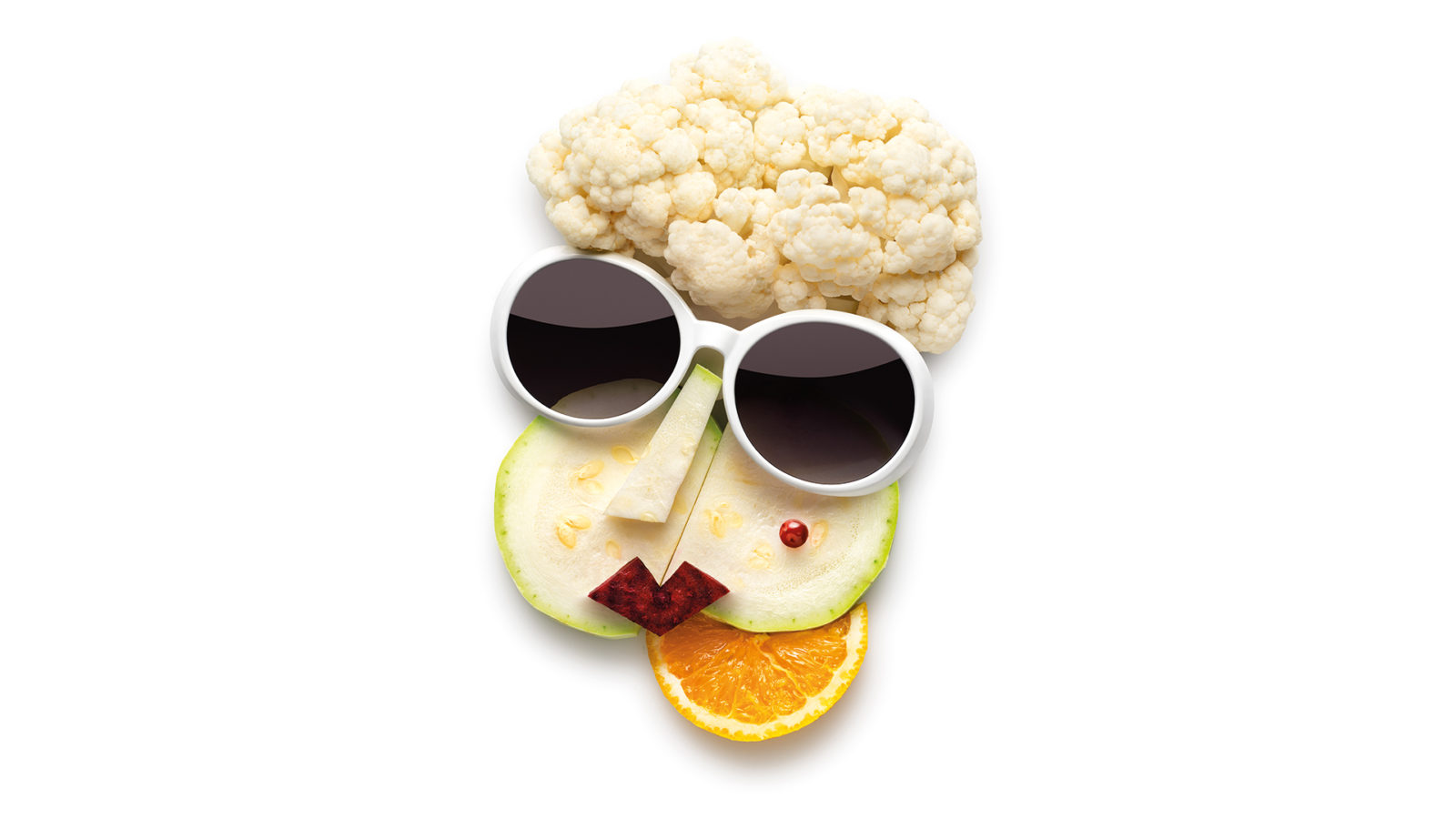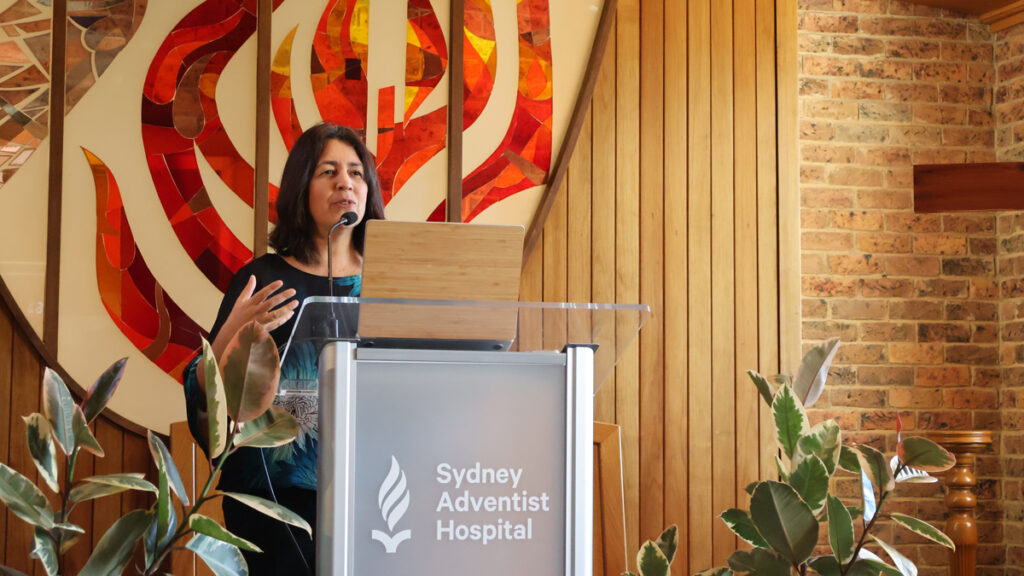My mum is proudly what some may call a “health nutter”. Relishing the fitness craze of the ‘80s, she became an aerobics instructor, telling us tired teenagers that, “if you want to have energy you have to use energy!” My siblings and I knew that if we told mum we had an ailment, the prescribed remedy would be a glass of water.
A few years ago, Mum announced she was changing her diet from vegetarian to vegan. We collectively agreed that this was the icing on the health nutter cake—a sugar-free cake of course!
I actually admire Mum’s dedication to health. It has paid off. She certainly doesn’t look her age. So three years ago, when I experienced some health problems, I began researching, doing all I could to learn how to reclaim my health. I read books, explored YouTube and watched documentaries. I decided to “go vegan” as well. My health improved significantly.
In the 1800s, Ellen White said, “Tell them that the time will soon come when there will be no safety in using eggs, milk, cream or butter, because disease in animals is increasing . . . The time is near when . . . the whole animal creation will groan under the diseases that curse our earth” (Counsels on Diet and Foods, p 349, italics added). We need to consider whether this time has come. As we ponder this, I’d like to share seven things I’ve learnt on this journey.
1. God gave us a prophetic word regarding diet
God gave Ellen White visions, not only of deep spiritual significance, but also guidelines on how to physically thrive in these last days. “I was shown that God would give to His commandment-keeping people a reform diet, and that as they received this, their disease and suffering would be greatly lessened” (Counsels on Diet and Foods, p 481, italics added).
Did you get that? God clearly told us what we were to eat in order to thrive. It wasn’t Ellen White’s idea or a feeling she got while praying. God showed her in a vision.
2. We have been given clear instructions regarding health evangelism
God showed Ellen White that health education was to be a means of service to others and an avenue to share the gospel. Mrs White said God wanted us to have “centres of influence” in all our cities. Places where people could come and receive health education in the form of scientific lectures and cooking classes, and eat in a cafe providing wholesome foods. “As the people are taught how to preserve physical health, many opportunities will be found to sow the seeds of the gospel of the kingdom” (Testimonies for the Church, Vol 7, p 115).
3. Vegan Adventists are blessed with longevity
In nearly all the resources I have explored, there is a reoccurring theme—the Adventist Health Study. In The Blue Zones, we read that Adventists living in Loma Linda “have participated in a ground-breaking health and dietary study . . . as a group they currently lead the nation (USA) in longest life expectancy.” The Adventist study, one of the largest studies of its kind, has shown that Adventists have lower rates of cancer, heart disease and diabetes compared to other Californians. The more the Adventists moved toward a vegan diet, the lower their rates of obesity, type 2 diabetes and overall mortality. [pullquote]
4. Science confirms what Ellen White wrote more than 100 years ago
With rising rates of obesity, heart disease, cancer and diabetes, the Western world has become obsessed with diets. Our media is filled with conflicting information. The public is incredibly confused. However, when we look to reliable scientific studies for answers, the evidence aligns lifestyle disease with the consumption of meat, dairy and eggs. In addition to the Adventist Health Study, The China Study, by Dr Colin Campbell, found that Chinese people who consumed low amounts of animal protein in their diet had lower rates of cancer. Dr Michael Greger’s New York Times best seller, How Not to Die, describes hundreds of scientific studies which demonstrate that a plant-based diet prevents or reverses our top 15 causes of death.
5. Our role is to care for God’s creation
At Creation, we were instructed to “dress and keep” our world (Genesis 2:15). Genesis 1:26-28 says that we are to have dominion over the earth. The word “dominion” implies care given by a king. As a benevolent king takes care of his subjects, we are to care for our environment. According to the documentary Cowspiracy, the single most effective thing we can do to save the environment is reduce animal agriculture. It accounts for more greenhouse gas emissions than the combined exhaust of all the world’s vehicles and up to 80 per cent of water usage. 91 per cent of the Amazon rainforest’s destruction is due to clearing for cattle grazing. In addition to forecasts of fishless oceans in the future, National Geographic studies show that 46 per cent of the plastic in our oceans is from the fishing industry. Taking shorter showers, saying “no” to straws, using recycled paper or riding your bicycle to work are minor benefits compared to not eating meat and dairy.
In 2018, the controversial Australian film, ironically titled Dominion, was released. This two-hour animal welfare tragedy documents the reality for many animals that are bred for our purposes and how we have become a society that exploits animals.
Despite our best efforts to regulate the industry and kill “humanely”, animals are suffering at our expense like never before in earth’s history. Have you ever considered what happens to the unwanted male chicks of the egg industry? Or the surplus calves in the dairy industry? In Australia alone, up to 620 million land animals are killed every day to meet consumer demand for animal products. Many animals spend their short lives in factory farms, standing in manure, having no sunlight or room to move. Meanwhile approximately two-thirds of all antibiotics in Australia are used in the animal agriculture industry. Information such as this is stirring people’s consciences, driving them to make informed choices about what they eat. As Christians it is our responsibility “to lighten, instead of increasing, the weight of suffering which his (man’s) transgression has brought upon God’s creatures” (Patriarchs and Prophets, p 443).
6. Our health message opens doors
Imagine if your middle-aged executive friend was diagnosed with heart disease and you were able to suggest they attend your church’s health education service. Imagine if your neighbour was lamenting about her children’s diet and you were able to invite her to your church’s free cooking classes. Imagine if your vegan colleague wanted to go out for lunch and you were able to suggest your church’s cafe. Imagine if visitors were impressed and intrigued by your church’s healthy basket lunch. Since becoming vegan I’ve experienced some of these scenarios. In fact my friends have almost invited themselves to health programs at my church!
7. Veganism is becoming mainstream
Kip Andersen, director of Cowspiracy and What the Health, asserts, “Everything that vegans were before—weak, weirdos, not really part of society—is changing. This is the future, this is now, this is strong . . . being looked up to rather than weird. It’s part of the norm. It’s cool and hip. Everything it wasn’t a few years ago it now is.”
As people seek better health, care for the environment and support animal welfare, the number of people becoming vegan has quadrupled in the past five years. Veganism is one of the fastest growing movements of our time. Consequently, The Economist magazine has declared 2019, “The Year of the Vegan”.
As a denomination we are always seeking relevance and ways we can connect with our community. The world is seeking a cure to lifestyle-related diseases and ways to save our planet from environmental destruction. Many are turning to a plant-based diet to achieve this. Is it possible that God guided us to promote veganism in order to provide us with a relevant evangelistic tool for 2019-“The Year of the Vegan”? I believe so. May we see our health message in a positive light—that it is a God-given lifestyle that gives us abundant health, fulfils our role as caretakers of the earth, and gives us an amazing opportunity to serve and show God’s love. I pray we will individually embrace this movement and continue corporately to establish “centres of influence” in multiple locations across our cities, fulfilling God’s plan.
Personally, I think my mum is right. I believe it’s time.
Tracey Chatman is a health ‘nutter’ (like mother, like daughter!), wife and mum of 3 and a member of Bunbury Seventh-day Adventist church, WA.






